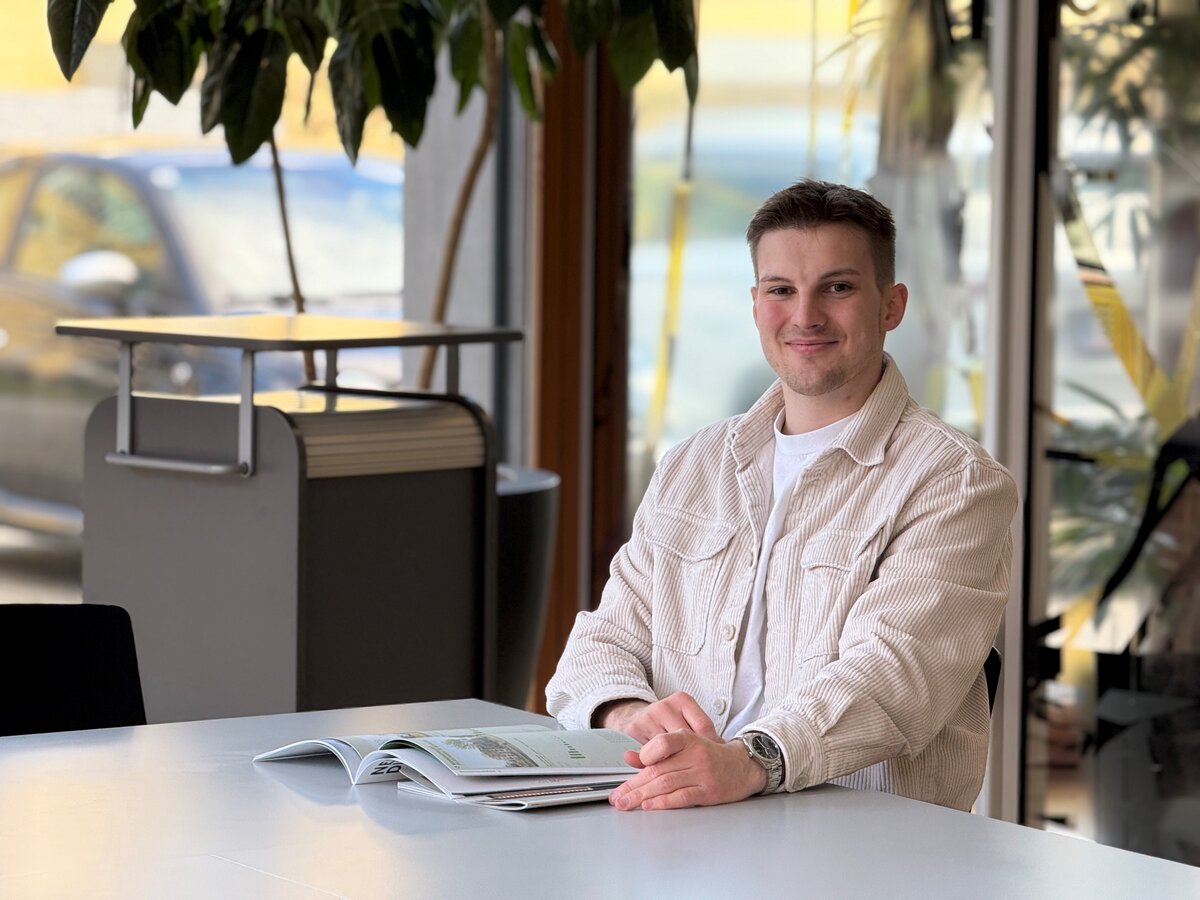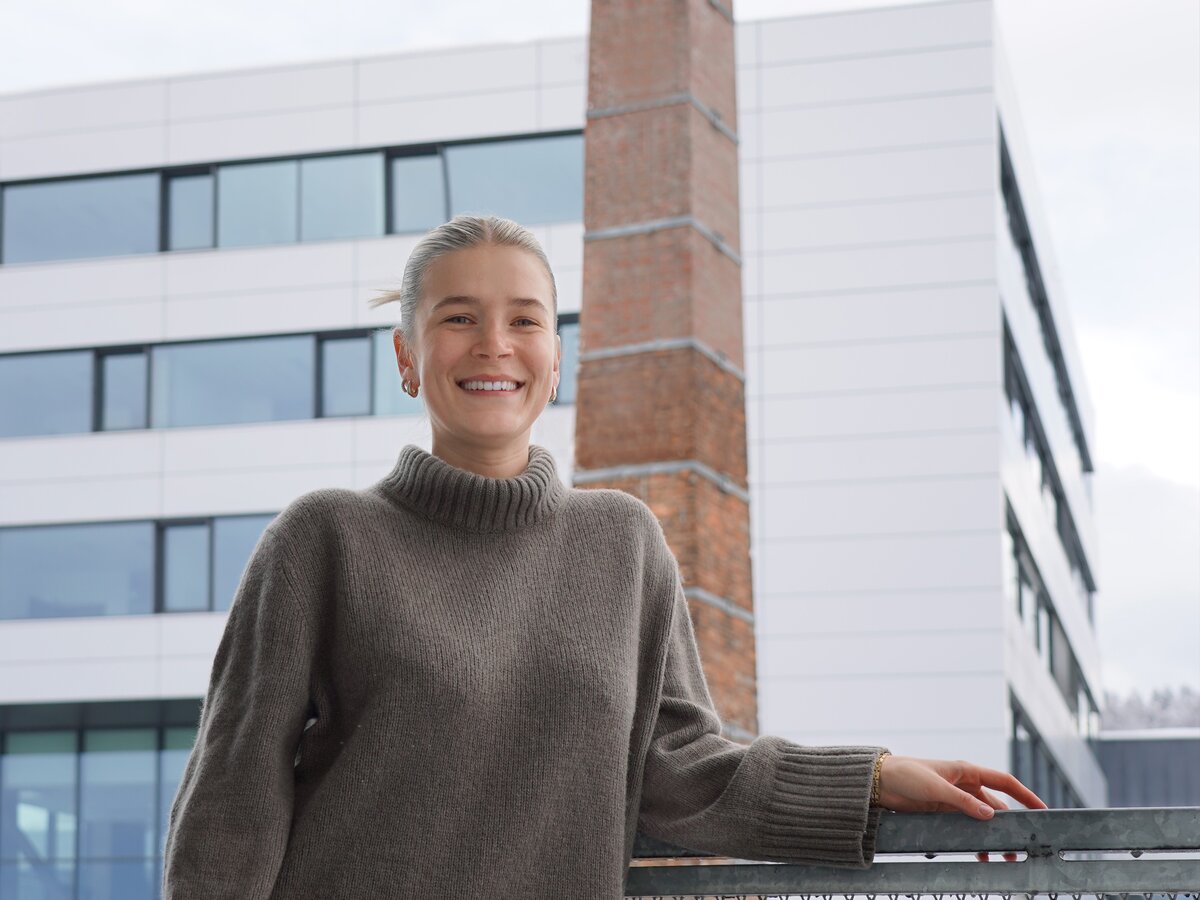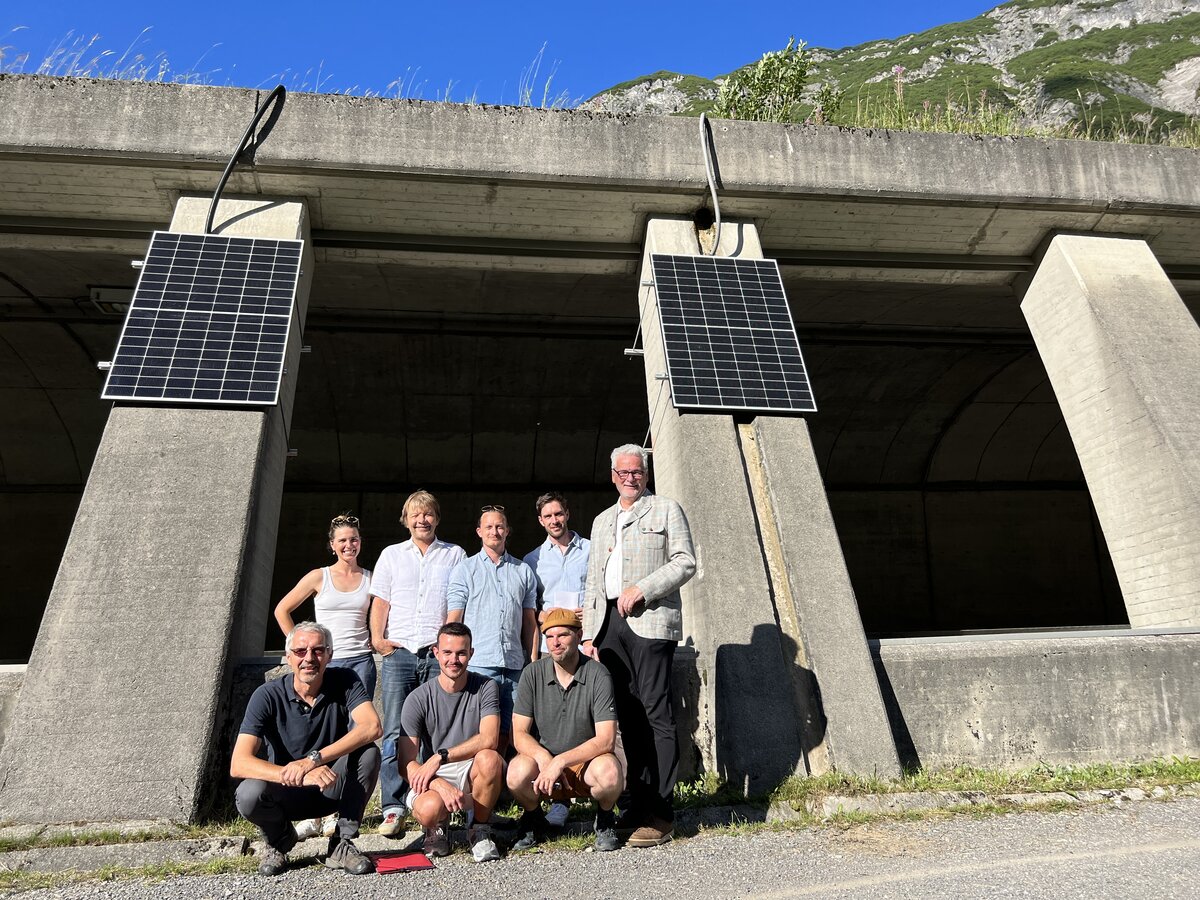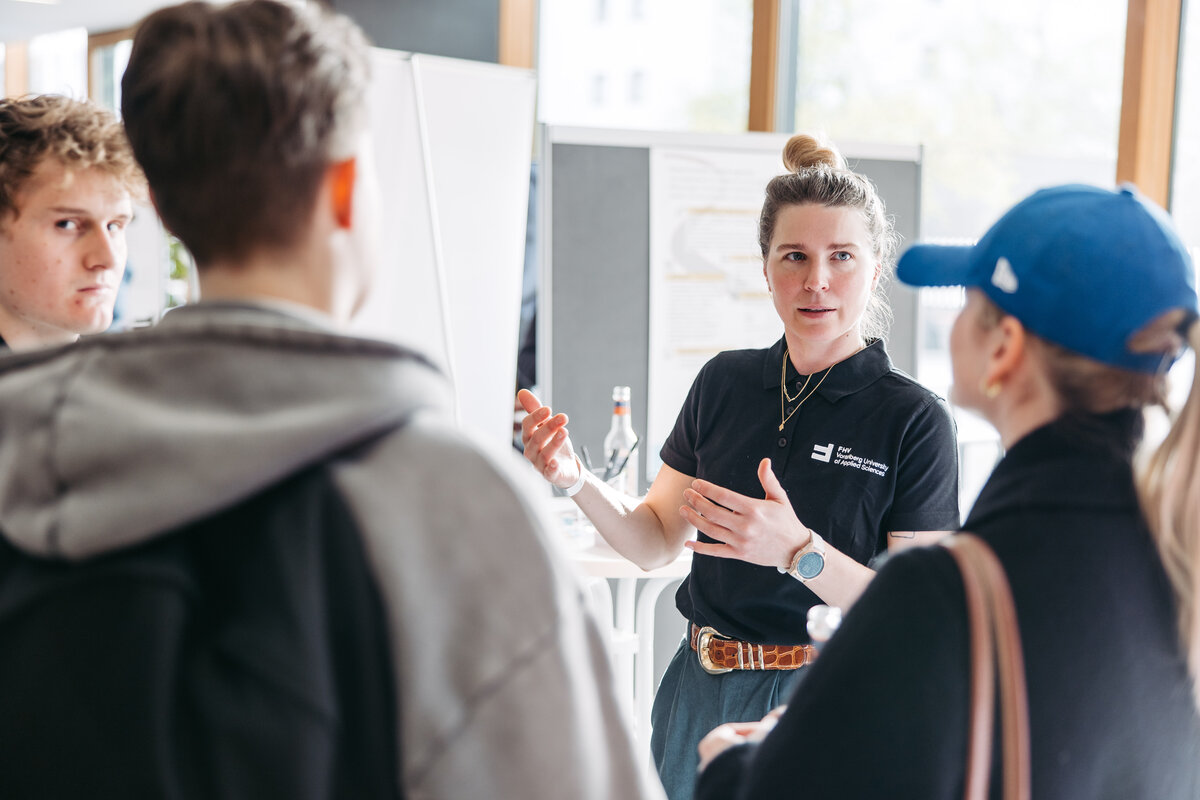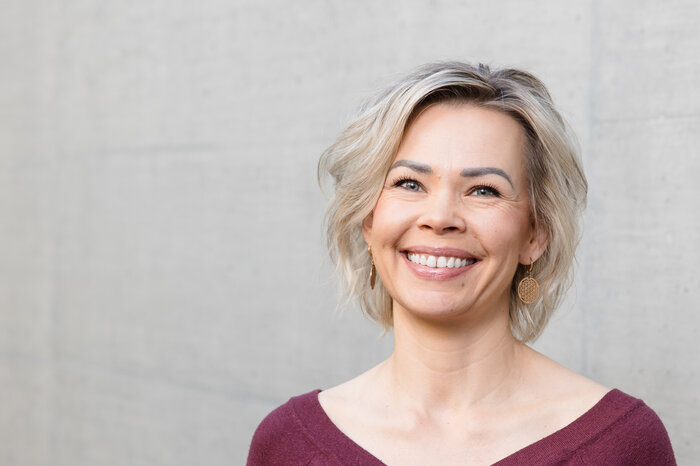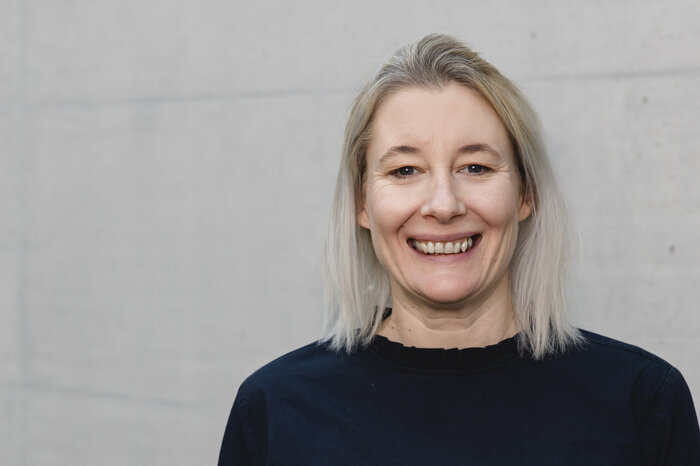Sustainable Energy Systems
Master's degree, part-time
In the Master's degree in Sustainable Energy Systems, you will be intensively prepared for the challenges and opportunities of the energy transition. You will focus on the energy-efficient use of electricity and heat in buildings, industry and mobility. You will deal with renewable energies, smart grids and the intelligent conversion and storage of Energy.
After completing this degree, you will have an overall understanding of energy management and energy technology This knowledge will help you to establish sustainability and energy autonomy in companies and contribute to the sustainable design of our future.
This is how the 120 ECTS are divided over four semesters - including compulsory subjects, electives and master's thesis:
Context Studies: Selection of 1 or 2 modules amounting to 6 ETCS ▷ More information.
ECTS: Credit points according to the "European Credit Transfer System". In accordance with international standards, 120 ECTS points must be earned over 4 semesters.
Learning content in detail
CS | Contextual Studies: Selection of 1 or 2 modules amounting to 6 ETCS ▷ More information.
ECTS: Credit points according to the "European Credit Transfer System". In accordance with international standards, 120 ECTS points must be earned over 4 semesters.
Admission to the final examination
In order to register for the final oral master's examination:
- all courses in the curriculum must have been successfully completed
- the master's thesis has been positively assessed
Studing part-time
Studying alongside your professional career is both challenging and highly rewarding. On-campus sessions at FHV, e-learning units, self-directed study, as well as group and project work alternate throughout the programme. To succeed, you will need discipline, consistent time management, and an agreement with your employer. We recommend reducing your professional workload to 50–70%.
The four-semester Master’s degree is designed to accommodate the time constraints of working professionals. To support you, we offer the following organisational measures:
- On-campus sessions and examination dates are scheduled well in advance and generally take place on Fridays and Saturdays from 8:00 AM to 17:00 PM.
- Examinations held immediately after classes help to avoid an accumulation of assessments at the end of the semester.
- Projects, group work and opportunities for independent study allow you to manage your time flexibly.
- Electronic resources (lecture notes, e-books, etc.) support you in achieving your learning objectives.
The programme alternates between attendance at the FHV, e-learning units, self-organised learning, and group and project work. A reduction in professional activity to 50–70% is recommended in order to enable a good work-life balance.
Course and examinations take place:
- In general Fridays and Saturdays from 8:00 AM to 5:00 PM
- Individual lectures during the week in the evening with video recording
- Contextual study on Thursday evening and/or as block weeks
- Admission to the final oral examination:
- all courses in the curriculum must have been successfully completed (examination regulations and grading scale) and
- the Master's thesis must have been graded positively.
- Degree awarded: Master of Science in Engineering, MSc
- Level of the degree according to the national and European qualifications framework: Master's (2nd cycle)
- Field of study according to ISCED-F code: 0713
Career opportunities after graduation
Energy consultant: Advice for companies, local authorities or private individuals on increasing energy efficiency and using renewable energies.
Project management for renewable Energy: Planning, implementation and monitoring of projects in the fields of hydropower, solar energy, biomass, geothermal energy, etc.
Research and development engineer: Working on innovative technologies and solutions to promote sustainable Energy and reduce CO2 emissions.
Energy analyst: Analysis of energy consumption data and development of strategies to optimize energy use.
Environmental and sustainability manager: Development and implementation of strategies and measures to promote sustainability in companies or organizations.
Manager of an energy supply company: Management and strategic orientation of a company that generates or supplies energy, especially in the field of renewable energies.
Teaching and research activities: Working at universities or research institutions to impart knowledge and research new technologies.
Engineer for building technology and energy efficiency: Planning and optimization of energy-efficient buildings and technical systems
Sustainable Energy Systems student stories
Why study Sustainable Energy Systems at the FHV?
- This degree programme deals with one of the most important topics of our time: make your contribution to the energy transition.
- The Master's programmes of the FHV enable an exceptionally interdisciplinary pool of electives ▷ To Contextual Studies
- The proportion of external lecturers from top industrial companies in the region is extremely high
- The structure of the degree programme is aimed at the compatibility of career, studies and family
- The expansion of a regional company and private network allows exchange, foresight and advancement
- Access to knowledge does not always have to be expensive, we currently even offer it for free
Access and application
The Master’s degree programme Sustainable Energy Systems requires the following qualifications or competencies:
- Completion of a relevant Bachelor's or Diplom degree with a focus on engineering, natural sciences, or industrial engineering, or
- Completion of a fully equivalent degree or of a degree at NQR Level 6 (Bachelor’s)
The relevant previous degree must include the following core subject areas, in either of the two options below:
| Min. ECTS Variante 1 | Min. ECTS Variante 2 | Kursbereich |
| 6 | 6 | Quantitative Methoden |
| 21 | 9 | Ingenieur-/Naturwissenschaften |
| 3 | 3 | Informationstechnik/-verarbeitung |
| - | 12 | Betriebs-/Volkswirtschaft |
| 30 | 30 | Summe |
The decision on the relevance or equivalence of the previous qualification, and thus on admission, lies with the programme director. If the equivalence of a degree is fundamentally given but certain elements are missing for full equivalence, the programme director is authorised to determine equivalence with the condition of supplementary examinations, which must be completed during the Master’s programme.
For admission, proof of language proficiency at level B2 in both German and English (according to the Common European Framework of Reference for Languages) is required.
FHV's application periods are structured as follows:
Application Period I: 15 November – 1 March
Apply by 1 March to benefit from an early admission decision.
Application Period II: until 31 May
You can apply for all study programmes regularly until 31 May.
Application Period III: until 31 August
Some programmes may still offer individual places until 31 August.
Important information:
The application deadline for applicants from third countries (non-EU/non-EEA, except Switzerland) is 1 March.
Two steps to your desired degree at FHV:
Step 1:
Assessment of your complete application documents, your prior education, and relevant experience.
Step 2:
In a personal interview, we get to know you better – your goals, your motivation, and your reasons for choosing this degree programme.
In parallel to your application at FHV, you also apply to a partner company to secure your training position.
Special Provisions: If you hold a qualification from a higher vocational secondary school (e.g. HTL, HAK), certain courses may be individually credited towards your degree. Details will be discussed with the programme director during a personal consultation.
Do you still have questions about the study programme?
For a personal consultation, please contact us directly:
| Monday to Thursday | 08:30 - 11:30 am |
or by individual appointment.
Information events are held at the FHV throughout the year. You are welcome to come along and get consultation. Here is an overview of upcoming events:
